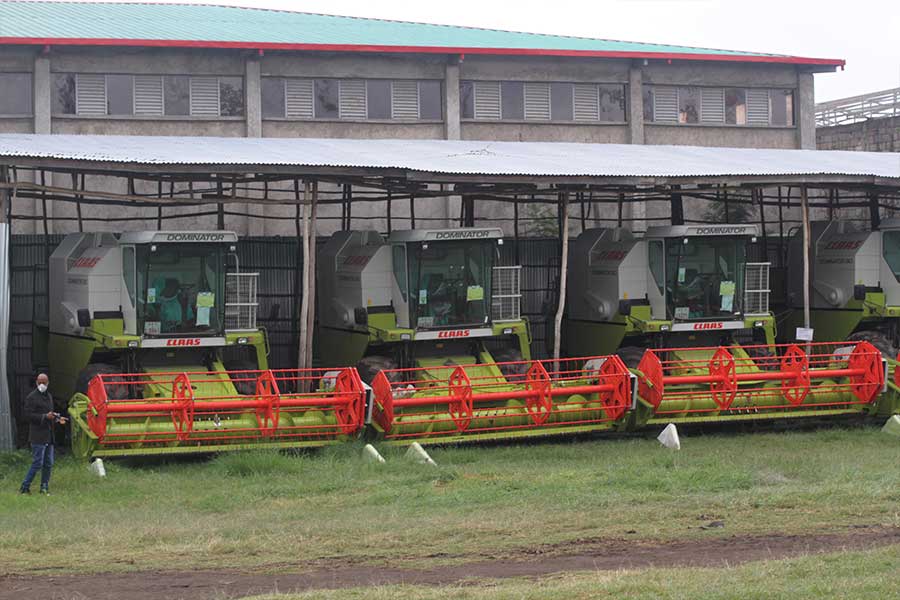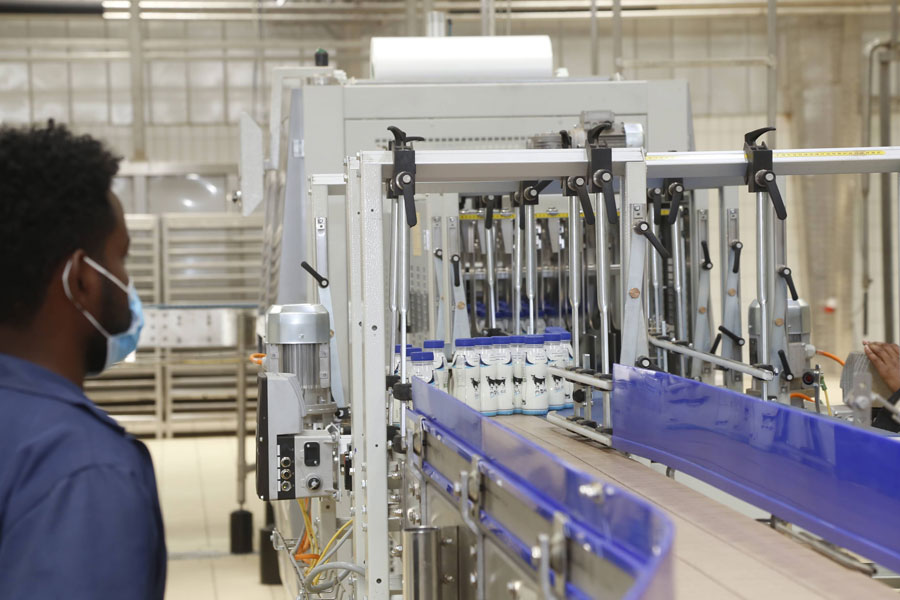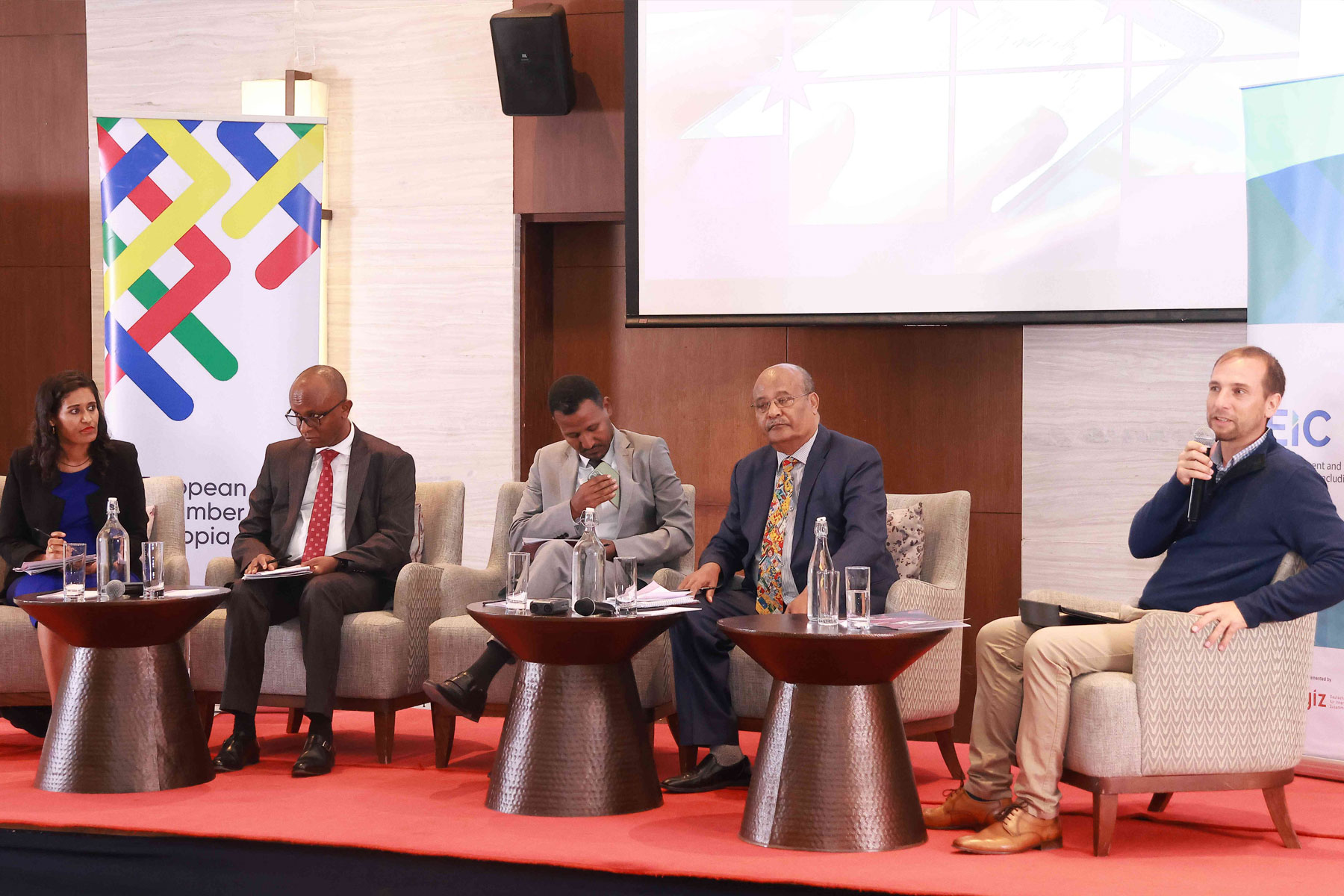
News Analysis | Dec 15,2024
A heated tax dispute is blossoming between authorities and six major investors in the floriculture sector. The conflict stems from an investigative tax audit of the Dutch family-owned business initiated two years ago, sparking uncertainty and legal battles within the industry.
At the centre of the storm is Desa Plants Plc, a subsidiary of Florensis, Europe's largest supplier of cut flowers with 13 million euros in revenues last year. A tax audit resulted in the rejection of 38pc of its expenditure. Subsequent audits of Red Fox Ethiopia Plc, Maranque Plants Plc, Asella Farm Plc, Klaver Farm Plc and Marginpar Farm Plc, had upto 55pc of their costs rejected by the Medium Tax Payers Branch Office.
The companies took the matter to Aynalem Nigusse, Minister of Revenues. While Desa Plants successfully appealed its case before the Federal Supreme Court's Cassation Bench last year, tax authorities have persisted in their claims against the other five, citing a lack of clarity in tax stipulations.
Desa primarily operates on a 15hct plot in eastern Shewa Zone, Oromia Regional State. General Manager Ronald Vijverberg recounts the challenging legal battle against tax authorities, emphasising the calculations only considered sales amounts without factoring in production costs. He claims that 41 million Br including interest and penalties was demanded.
He recalls the contentious tax debacle that he claims threatened the company's very existence as it was forced to kick start a legal battle. Justices Mulgeta Ayalew, Yosef Alemu, Desta Abate, Fasika Tamirat and Rediet Lemma of the Federal Supreme Court's Cassation Bench ruled in favour of the company in December last year.
"We took a gamble and won," said Ronald. Yet, the 50pc payments to appear before the tax appellate commission have not been returned.
However, officials from the Medium Tax Payer's Branch Office have not heeded the court's ruling. Deputy Head Sisay Gezu, suggests that there is a pervasive problem of underreporting tax liabilities in the industry, which requires a vigilant response from officials.
"We need to detect and deter non-compliance," he told Fortune.
Caught in the Ministry's ambitious plan to collect 440 billion Br in tax revenues this year – a 35 billion increment from the previous year – the floriculture businesses are facing heightened pressure. Profit margins are dwindling, with production costs exceeding revenues by five percent. This precarious situation is not unique to Desa Plants; it is a shared concern among major players in the industry.
One of the six companies caught in this tax turmoil is Assela Farm Plc. Last year, their tax declarations were rejected for "inflating the cost of freight expenses." The Company operates out of a 24hct farm in Welliso, Oromia Regional State.
Nestanet Mengistu, the finance head of Assela Farm, fears for her company's existence, pointing out that more than half of their costs are attributed to freight.
The novel nature of tax regulations in the industry and insights into floriculture's unique challenges have been noted by industry stakeholders.
Tewodros Zewde, who heads the 126-member strong Ethiopian Horticulture Producer Exporters Association, has been vocal about the industry's concerns. He fears that the ongoing tax dispute might lead to similar audits that may open Pandora's box, affecting the 87 active flower farms in the country.
"This would shake the industry to its core," he said.
The potential for overstating costs while underrepresenting revenues requires a deeper investigation, according to the legal representative from the Ministry of Revenues.
Wendimu Adise observed the emerging tax contention as the novelty of the sector presents a lack of rigorous standards for assessing profitability and costs. The continued profitability of the businesses, despite claims of surging expenses, raises questions about the accuracy of information on costs, according to Wendimu. He said that tax evasion is a possibility, highlighting the need for clear legal frameworks to prevent tax disputes.
As the industry grapples with regulatory uncertainties, legal battles, and financial pressures, the need for clear standards, comprehensive studies, and well-defined legal frameworks becomes increasingly evident.
The importance of investigating potential tax evasion is deemed critical by legal experts as companies continue to remain in business after declaring a loss for three years.
Yohannes Woldegebriel, point to the need for laws that determine allowable expenses to prevent potential tax disputes across all sectors. He argues clear legal frameworks are essential for maintaining tax integrity and fostering business trust in the long term.
With promises of an ongoing study by experts drawn out of the National Bank of Ethiopia, the Revenue Ministry, and the Customs Commission to formulate clear standards, officials at the Ministry of Agriculture tried to mediate the plight.
Mekonen Solomon, a senior coordinator of horticulture, underlines a legal obligation for companies to pay the levied taxes until the study addresses critical issues such as the cost-to-revenue ratio, wastage margin and input-output coefficient.
"It'll resolve the industry's tax conundrum," he told Fortune.
PUBLISHED ON
Dec 30,2023 [ VOL
24 , NO
1235]

News Analysis | Dec 15,2024

Featured | Aug 16,2020

Featured | May 08,2021

Featured | Jan 07,2023

Fortune News | Oct 27,2024

Fortune News | Apr 28,2024

Commentaries | Jul 01,2023

Commentaries | Jan 26,2019

Agenda | Feb 19,2022

Radar | Jun 12,2021

Dec 22 , 2024 . By TIZITA SHEWAFERAW
Charged with transforming colossal state-owned enterprises into modern and competitiv...

Aug 18 , 2024 . By AKSAH ITALO
Although predictable Yonas Zerihun's job in the ride-hailing service is not immune to...

Jul 28 , 2024 . By TIZITA SHEWAFERAW
Unhabitual, perhaps too many, Samuel Gebreyohannes, 38, used to occasionally enjoy a couple of beers at breakfast. However, he recently swit...

Jul 13 , 2024 . By AKSAH ITALO
Investors who rely on tractors, trucks, and field vehicles for commuting, transporting commodities, and f...

Jul 12 , 2025
Political leaders and their policy advisors often promise great leaps forward, yet th...

Jul 5 , 2025
Six years ago, Ethiopia was the darling of international liberal commentators. A year...

Jun 28 , 2025
Meseret Damtie, the assertive auditor general, has never been shy about naming names...

Jun 21 , 2025
A well-worn adage says, “Budget is not destiny, but it is direction.” Examining t...